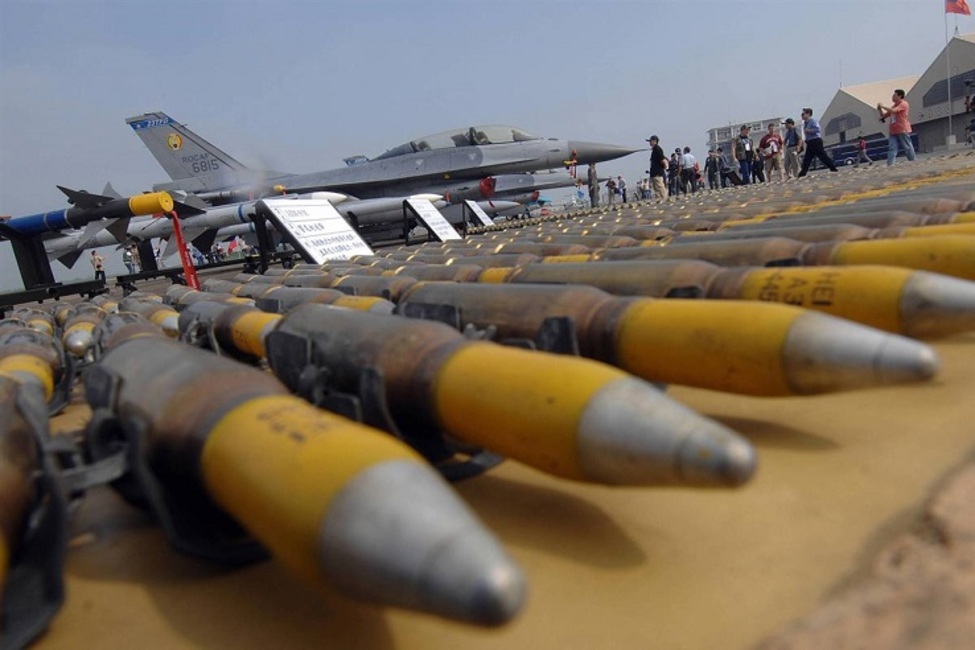Pentagon has announced that new arms contracts with these countries will be a measure to help promote the national security of the U.S. regional partners, that consequently will help national security and foreign policy of the country, but what is happening at real scene is different from what is said about it. Because according to previous experiences, selling U.S. made arms to the regional countries including its Arab partners, does not and will not help improve security trends of these countries in external field, but also causes expand security and military crises in the region, crises whose main responsibility to intensify and to deepen rests with the U.S. and the White House can not shun its regional and international consequences and outcomes.
Today, Saudi Arabia as the most important Arab country of the region, not only is the largest importer of weapons and arms in the world, but also has had the largest number of arm contracts with the U.S. and has purchased the most sophisticated arms including air defense systems from the country.
Just in the past three years, Riyadh Alone has signed more than $ 450 billion value of military purchase contracts from the U.S.; but the country and UAE as its main ally, not far behind Saudi Arabia in mega scale weapons purchase have not only been grounded in Yemen war against Ansarallah but also the vital regions and strategic centers of the country that are being protected by the U.S.- as well as the Zionist regime-made powerful air defense systems, have also been targeted by Ansarallah missiles.
The U.S. Administration follows two objectives by its new arms sell contract with Saudi Arabia, UAE and Jordan;
First, general objectives that have mainly origins in interests and strategies of military- industrial complexes inside the U.S.
Second, specific objectives which are connected to the three countries.
Selling of new arms to Saudi Arabia and UAE is generally aimed at strengthening operational and military position of the two countries in Yemen. Reducing trend of Saudi Arabia weapons reservoirs from one hand, and intensifying strategic and offensive operations of Ansarallah from the other hand, have caused weakening field status of Riyadh and Abu Dhabi in Yemen. Therefore, one of the main applications of the recent arms contracts is strengthening the military power of Saudi Arabia and UAE in Yemen war. However, creating a balance against the Islamic Republic of Iran is also another objective in this respect.
On Jordan, all aids and selling of weapons that are being made to this country originate from the position of the country in the U.S. regional policies that requires Jordan to become empowered from militarily and security points of view. From the U.S. point of view and with regard to Jordan’s relations with the Zionist regime, and specific geopolitical circumstance of the country along the borders of the occupied territories, Jordan is one of the main pillars of providing security to the Zionist regime in the region. According to the accords that the U.S. has with Jordan, the country will be the host to the CENTCOM of the U.S. army in the region. Likewise, based on the Defense Cooperation Agreement signed between the U.S. and Jordan in February 2021, Jordan would put 12 air and naval bases at the U.S. disposal.
In the U.S., the interests of military – industrial complexes that are now amounted to 85000, prevail over election slogans, campaign promises, attitudes and policies looking for reduction of military as well as hard-ware presence. For example, during WWII, managers and responsible personalities of major arms manufacturing companies played role more than ever in decision-makings and decision-takings concerning the U.S. qualitative and quantitative presence in war.
Military- industrial complexes and major arm manufacturing companies have a very effective and bolded role in defining the general policies and orientations of the U.S. foreign policy, and through their extensive influence they have in the U.S. internal political structures, embody their own objectives and economic interests as the U.S objectives of economic interests as well as its regional and international allies, and by doing so, they play a role as clandestine factors in the process of decision- makings and decision- takings.
The issue is so important that without knowing military – industrial complexes, the modality and the extent of their influence in the U.S. Administration, it will be impossible to have a full understanding of patterns, strategies, and trends governing over the foreign policy of the country.
To conclude, it should be emphasized that susceptibility of the U.S. Administration from arms manufacturing companies that shows itself within the framework of mega scale contracts, despite their short term interests, it causes strengthen continuous war economy in the U.S. in long term.
Moreover, unlimited selling of military weaponry to littoral Arab countries of the Persian Gulf and equipping them with sophisticated arms will receive consequential reactions at regional level that the U.S. should assume the responsibility of whatever outcome emanates from it.
The situation which prevails in Yemen today, in view of strategic and costly reactions that Ansarallah has incurred upon Saudi Arabia and UAE, and also fragile and insecure situations govern over Saudi Arabia and UAE can make these countries as the targets of Ansarallah missiles at any moment, which is essentially caused by interests that arms manufacturing companies pursue through selling arms at any price.










0 Comments